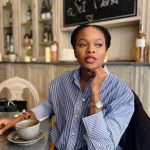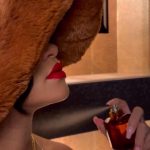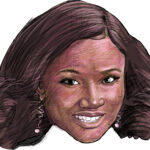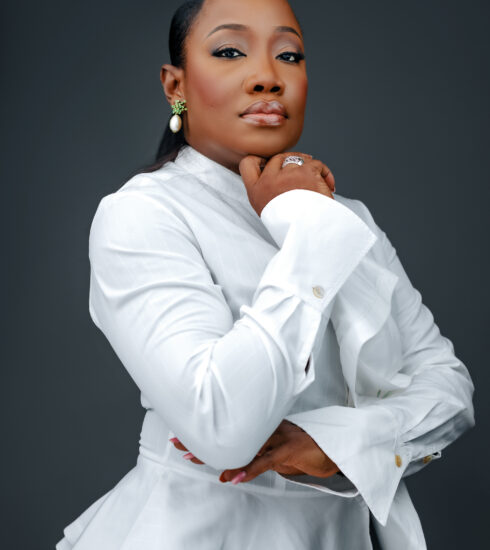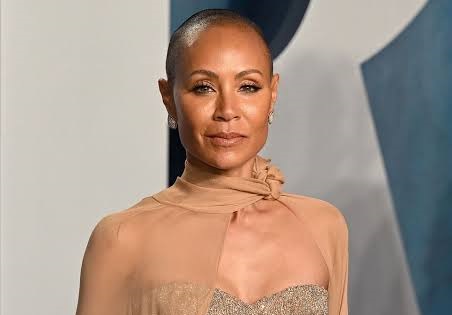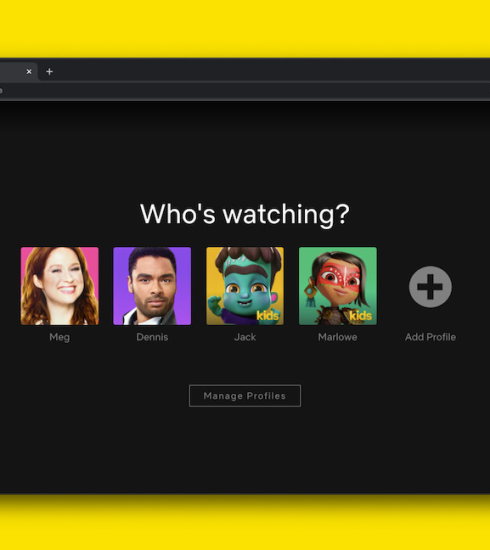SPOTLIGHT ON UGO MONYE
When Ugo Monye started his line 19 years ago, he never envisioned he’d have International coverage. Now on his 6th collection with media coverage from the sought after Vogue and other international magazines, the designer tells DOWNTOWN what his creative juices were feeling while he designed his new collection Konipari, which means it is limitless.
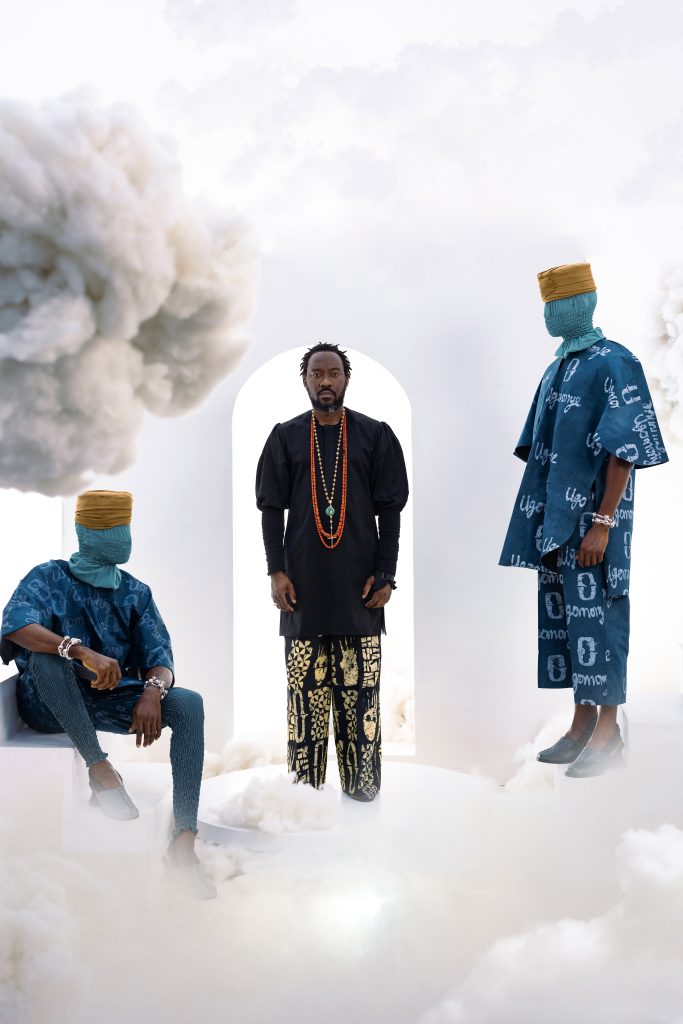
What inspired the Konipari Collection?
I might just say the beautiful African women inspired me to create the Konipari Collection. You know how you see them wear one outfit in multiple and different ways? That is the same way I thought of recreating something for men that they could wear in numerous ways. So it’s a one-piece, but you can wear it in different ways, and nobody will know it’s the same piece. When I say one-piece, I mean it’s one outfit that can be worn in multiple ways.
What colours did you decide to work with for the new collection?
So for the Konipari Collection, I chose to work with very cool colours, which are mint, green, and bronze. I was basically thinking of colors that would speak of luxury, comfort, as well as showcase the beauty of African fashion and its inspiration.
What sort of designs should we expect?
This year, you should be expecting designs that are more flowy at the top and with bigger bottoms like bigger pants and baggies. The designs would intrinsically be relaxing and made to showcase comfort, royalty, and luxury interwoven together.
You showed your collection at Lagos Fashion Week(LFW) last year. How much value does LFW bring to the fashion industry?
LFW has been a great blessing to the Nigerian fashion industry because, with little or nothing, they’ve been pushing the bar recently. I have been able to appear in Vogue and other international magazines, and it was because of them. Other people have been able to see my work because of LFW, which in turn brought more sales and a return on my investment in producing my designs.
How confident are you about your collection?
I feel so good about my new collection; it is a collection that I took my time to create. I am one of the biggest critics of my work, but I am pretty happy about this collection because every single piece that I envisioned came out exactly as I wanted it, so I hope everyone embraces what they see. It’s a bit edgy, as you know, but I hope everyone embraces what they see.
What are your thoughts on co-creation and collaboration?
My thoughts on co-creation and collaboration are that it’s beautiful to see people come together to create and make magic. Just imagine Ugo Monye creating a piece with someone who is into art. It makes so much sense because you need to show your expertise to the people, telling them that is your area and at the end of the day, you make serious magic.
I plan to collaborate with artists—people who paint. I will have them paint on my work and be creative along that same line. So I think it’s a welcome idea. However, for the Konipari Collection, I didn’t work with anybody.
I didn’t collaborate with anybody, but I’m open to collaborating with artists, shoe and bag designers, and as many people as possible that can also fit into the kind of stuff I am doing.
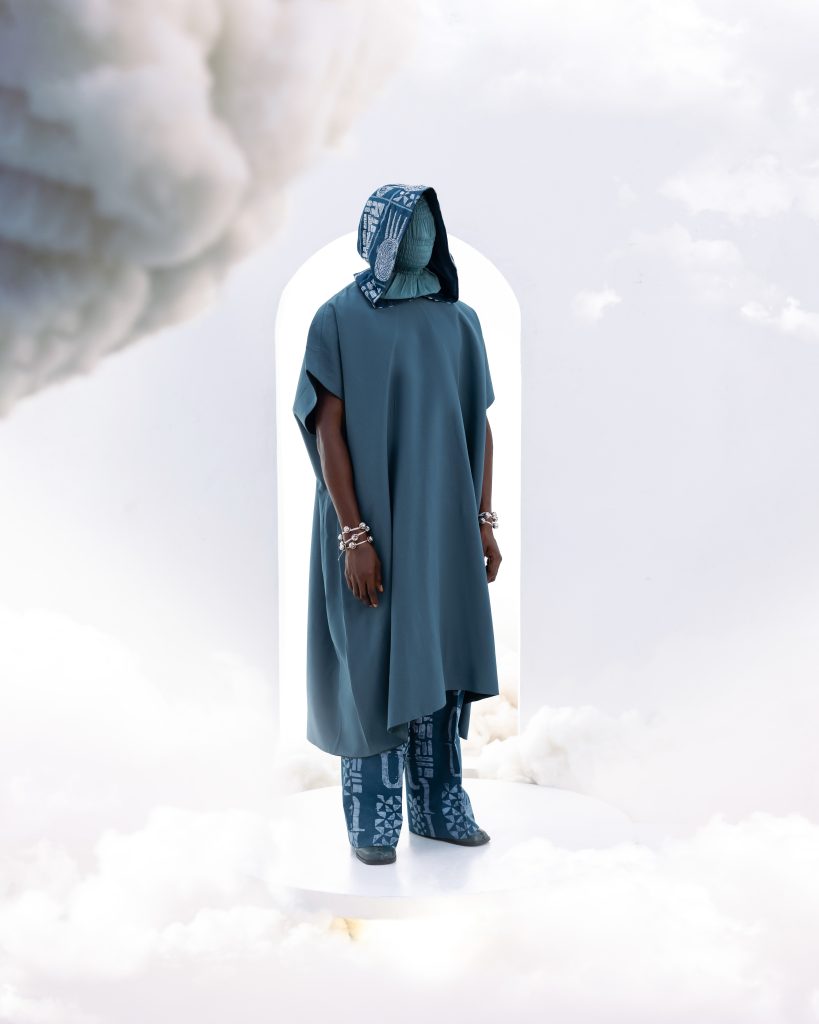
How well have Nigerians embraced the Konipari Collection?
Nigerians generally love the collection, and everyone has spoken positively about it. Apart from talking about it, many orders have been coming for many designs in the Konipari Collection. So I like the idea of being able to wear one particular design in different ways, so it’s been good because the orders have been coming in seriously. I think they’ve embraced it to a great extent, especially the guys that consider themselves bold, because of the element added to the collection.
Everything depends on how it is being used. We used different elements and materials like chiffon, a material that men ordinarily would not wear, but we’ve been able to use them in a way that looks appealing to the eyes of men, especially because we are a men’s fashion brand. Still, we are using different fabrics that women typically use more than men, and it’s because of the way we use them. The twist in how we’ve been able to incorporate those kinds of fabrics. They’ve seen that fabrics are not a female thing, neither is it genderassociated. Every fabric can actually be used for both male and female outfits.
What are your thoughts on designers and tailors copying another designer’s creation?
No designer would be happy when other designers copy his designs. They would prefer you come to meet them, and they make the cloth for you so that it will be done properly.
However, some people would say, “You’ve inspired people.” Hence, it’s a bittersweet feeling because you’ve seen people copying your work. Still, it would have been better if they had come to meet you. At least, that way, you would know that you are getting compensation for your hard work and brain work. However, because of the way Nigeria is, you will see people that will just come and carry your design and copy it without any compensation, royalty, or anything being paid to you. So that side of it, you are not happy about it, but at the same time, you are like, “I have inspired a lot of people,” because every designer’s dream is to make people aspire to inspire. In all of it, you would like to get some money or even be recognized for your creation, so it is a bittersweet feeling.
What’s your favourite piece in the Konipari Collection?
I have like two favourite pieces. The one that looks like a big flowy gown, that’s one of my favourite pieces. My second favourite piece is the one with the puffy and smoke sleeves. Those are my two favourite pieces. I can wear any of the pieces in the Konipari Collection because I love all of them, and I created them. But those two are the ones that stole my heart after completing them. Also, I love the one with the hood.
What do Nigerian fashion designers need to do to gain international recognition?
I am certain that what Nigerian fashion designers need to do to get global or international recognition is to portray Nigerian and African elements as much as they can in their designs.
There are a lot of things that we have; we have the aso oke, and we have the adire, and other incredible elements. We have so many fashion elements without which we cannot stand out in an international market because internationally, they are not used to seeing those things, so that’s what will stand out. And for the style, you must look for a way to blend that afro-bit of your fashion. When I say afro-bit, I do not mean afro b-e-a-t, but b-i-t. You must add that bit of Africa because you can’t do something entirely Western; you will be like one of the many already out there.
Imagine having one thousand white sheep and one black sheep; that black sheep will stand out. The black sheep is that African-Nigerian bit that will stand out internationally. I used to make suits in the past, but I saw that you couldn’t do a suit better than the western man. You can’t, it’s not our thing. To gain global recognition, we need to create our kind of suit so the international market can notice something different about the suit or piece.
When I say a suit, it’s not a Western suit. I mean our own style of clothing. We need to create our own style of clothing for the international market to be able to notice something different about it. It differs from what we are used to, but we can adapt.
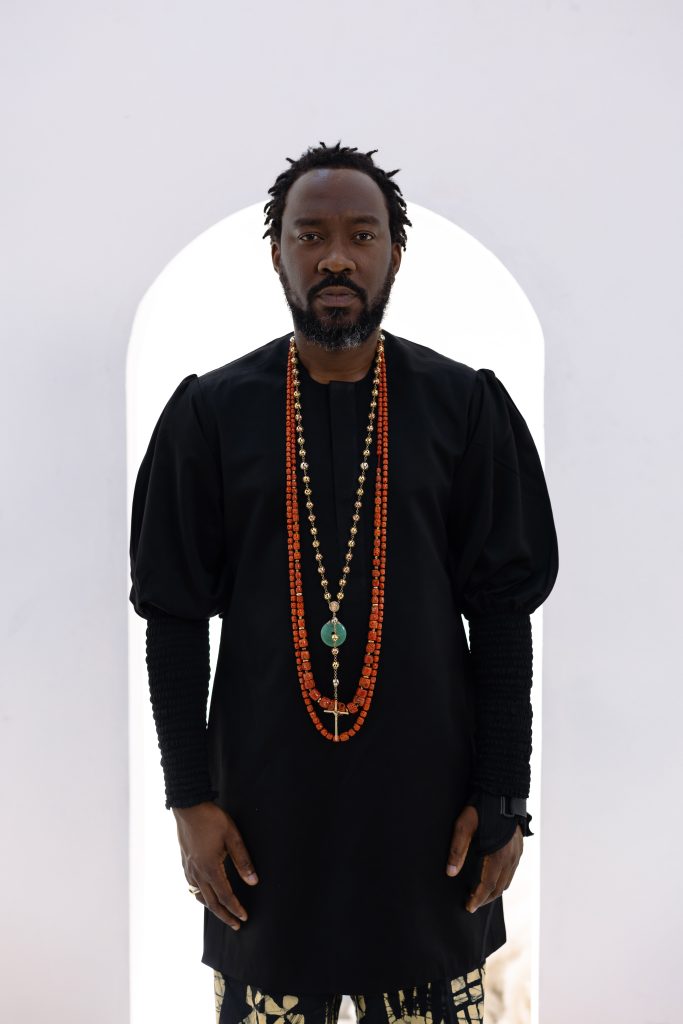
Who is your typical client?
My typical client is any client that wants to step outside the norm of what they have been used to seeing. That’s the kind of person I want to make clothes for. Someone ready to take the chance and wear something different from what he is used to seeing is my typical client. It’s more than just the regular traditional up-and-down, we’ll twist it a bit, and the guys are willing to try it because they’re not afraid to step outside the box. Those are the kind of people I like to make clothes for because when they wear them, other people see and compliment them, but some people might close their minds to things like that. So my typical clients are people that are willing to try new things.
What do you have for the Nigerian fashion industry and, by association, your brand?
For the Nigerian fashion industry, we have a lot of hardworking designers in Nigeria, and I would like to see us move beyond the borders, beyond the shores of Nigeria-Africa. As designers, we need to do this work consistently, not look at it as a business. It’s not just all about money; it’s like a ministry. It’s about preaching a particular kind of gospel so the rest of the world can come and see what is happening. It is about building the fashion industry, and one of the ways by which this industry could be helped right now is with our A-list musicians and entertainers. Imagine if we have our A-listers talking about our fashion in their songs, wearing our designs in their videos, and even wearing our creations in their shows; you would see its effect on the industry.
Many preach about originality, sing about being Africans and Nigerians, and use that to gain international mileage. Still, they don’t wear, sing, or preach about African clothes or designs.
Instead, you would hear them talk about Louis Vuitton and see them wear Gucci when they go out there. If they were actually promoting the African-Nigerian brands, you would see the effect it would have on the entire industry because once people see that this global musician from Nigeria is wearing a particular brand, they start to look at it and other brands from Nigeria. The guys abroad, too, will talk about it. It means there is more to offer than they already see.
I hope people work hard, and we need more creative people. We need more evangelists for the Nigerian fashion industry, not money. When I say not money, it means that we are not doing it because we want to make money. If it were all about money, there are specific designs I would have limited myself to. But I’m trying to be a good fashion ambassador of Nigeria to the rest of the world, that’s why I’m thinking outside the box. I want to show the rest of the world the things that can come from this country regarding fashion and creativity.
A lawyer by training, Onah packs over a decade of experience in both editorial and managerial capacities.
Nwachukwu began her career at THISDAY Style before her appointment as Editor of HELLO! NIGERIA, the sole African franchise of the international magazine, HELLO!
Thereafter, she served as Group Editor-in-Chief at TrueTales Publications, publishers of Complete Fashion, HINTS, HELLO! NIGERIA and Beauty Box.
Onah has interviewed among others, Forbes’ richest black woman in the world, Folorunso Alakija, seven-time grand slam tennis champion, Roger Federer, singer Miley Cyrus, Ex Governor of Akwa Ibom State, Godswill Akpabio while coordinating interviews with Nigerian football legend, Jayjay Okocha, and many more.
In the past, she organised a few publicity projects for the Italian Consulate, Lagos, Nigeria under one time Consul General, Stefano De Leo. Some other brands under her portfolio during her time as a Publicity Consultant include international brands in Nigeria such as Grey Goose, Martini, Escudo Rojo, Chivas, Martell Absolut Elix, and Absolut Vodka.
Onah currently works as the Editor of TheWill DOWNTOWN.


